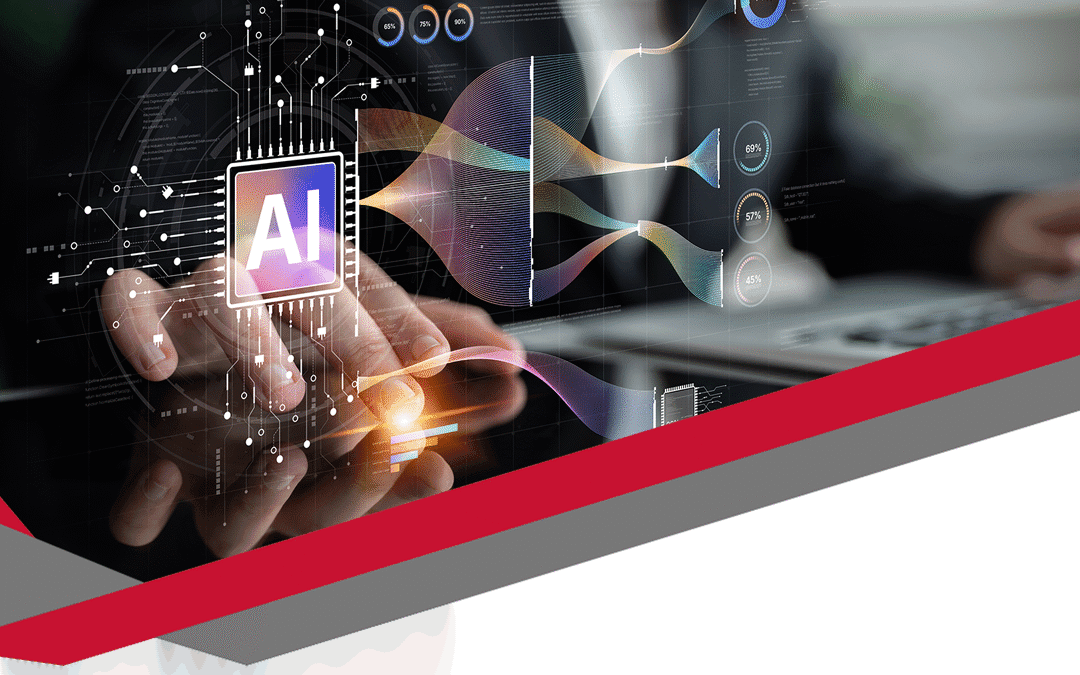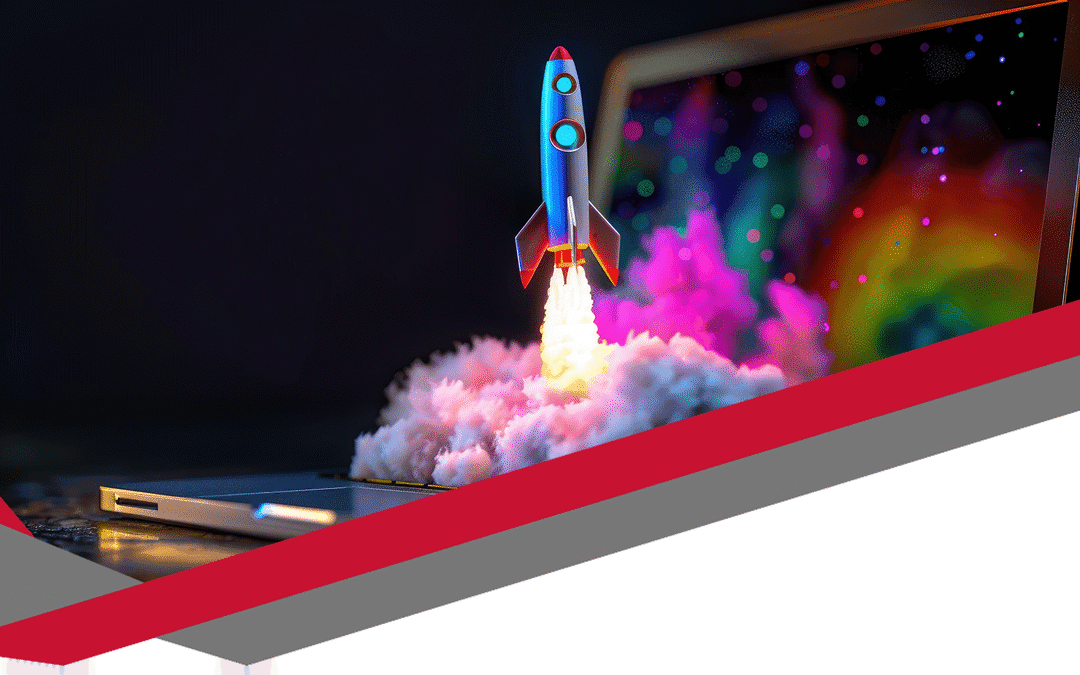
by victoria | 2 Feb 2026 | Microsoft 365
Microsoft 365 Copilot is changing how UK businesses use familiar tools like Outlook, Word, Excel, and Teams. Instead of adding another system to learn, it works inside the software many teams already use every day. That shift matters. It reduces friction, improves adoption, and helps people focus on work that actually needs human thinking.
For organisations across England, productivity pressure keeps growing. Teams juggle emails, meetings, reports, and data. Time feels tight. Copilot steps in as an AI-powered assistant that supports daily tasks while respecting Microsoft’s enterprise-grade security framework.
What Microsoft 365 Copilot actually does in real working life
Copilot pulls context from your Microsoft 365 environment. It reads emails you already have permission to access. Scans documents stored in SharePoint or OneDrive. It understands meetings recorded in Teams. Then it helps users act on that information faster.
Rather than replacing staff, Copilot reduces digital noise. Emails get summarised. Meetings turn into action points. Draft documents appear in seconds, ready for human review. Crucially, users stay in control. Copilot suggests. People decide.
That distinction matters for UK businesses focused on governance, accountability, and compliance.
Why Copilot fits UK data protection expectations
Data protection remains a serious concern for organisations operating under UK GDPR. Microsoft 365 Copilot does not train public AI models on your business data. It operates within your tenant boundary. Access controls remain unchanged. If someone cannot see a file normally, Copilot cannot see it either.
This design supports regulated sectors across England. Education, healthcare, legal services, and finance benefit from AI assistance without compromising data governance. That reassurance often makes Copilot adoption smoother at board and leadership level.
How Copilot improves productivity across departments
Different teams feel Copilot’s impact in different ways. Leaders gain fast insights. Admin teams reduce repetitive work. Sales teams prepare faster. Finance teams analyse data with fewer manual steps.
Here are two clear productivity gains UK businesses notice early:
- Faster document creation without starting from a blank page
- Reduced meeting overload through summaries and task extraction
These changes sound small. Yet over weeks, the time savings stack up.
Copilot does not sit on the sidelines. It lives inside Word, Excel, Outlook, PowerPoint, and Teams. That integration lowers the learning curve. Users ask questions in plain English. Copilot responds with content, insights, or structured data.
In Excel, it explains trends without complex formulas. Outlook drafts responses based on conversation history. In Teams, it captures decisions people missed. Each interaction removes friction from daily workflows.
Readiness matters more than licensing
Copilot works best when Microsoft 365 environments are well structured. Poor file management limits its usefulness. Weak permissions cause confusion. That reality makes planning essential before rollout.
This is where working with a Microsoft-focused IT partner helps. Digicomm 360 supports organisations preparing their Microsoft environments so tools like Copilot deliver real value, not frustration. You can explore this further on our Microsoft Copilot service page.
AI support without losing human judgement
UK business leaders often worry about accuracy. Copilot reduces effort, not responsibility. Content still needs review. Decisions still need people. That balance keeps AI supportive rather than disruptive.
Used properly, Copilot becomes a thinking partner. It handles drafts, summaries, and analysis. Humans handle nuance, ethics, and final judgement. That combination reflects how most successful UK organisations approach digital transformation.
Is Microsoft 365 Copilot right for your organisation
Copilot suits businesses already invested in Microsoft 365. It delivers the strongest results where collaboration matters and information overload slows progress. Organisations with clear governance frameworks benefit most.
If your teams already live in Outlook, Teams, and SharePoint, Copilot feels like a natural extension. When supported correctly, it becomes part of daily working rather than another tool fighting for attention.
For further technical detail on Microsoft’s approach to security and data boundaries, Microsoft’s official documentation provides clarity.

by nikbarlow | 15 Jan 2026 | Charity Microsoft 365, IT Support, Microsoft 365, Updates
Microsoft 365 Copilot: What the Office Name Change Means for Your Business
You may have recently noticed Microsoft Office being referred to differently across your apps and dashboards. This change reflects Microsoft’s latest update to its productivity platform, placing Microsoft 365 Copilot AI tools more centrally within the Microsoft 365 experience.
If you’re wondering what this means for your business and whether you need to take action, here’s a clear explanation without the hype.
Why Microsoft Has Updated the Office Brand to Microsoft 365 Copilot
Microsoft has repositioned its Office apps under a new naming structure that highlights its AI assistant.
Instead of seeing “Office” or “Office 365”, users may now encounter:
- A Microsoft 365 app experience with Copilot features
- AI tools appearing in Word, Excel, PowerPoint, Outlook and Teams
- Office.com redirecting to Microsoft 365 plans that reference Copilot functionality
According to Microsoft’s own documentation, this change reflects how AI is becoming part of everyday workflows rather than a separate tool.
https://learn.microsoft.com/en-us/microsoft-365/
What the Microsoft 365 Copilot Experience Actually Does
The AI assistant built into Microsoft 365 is designed to support everyday work, not replace it.
Depending on your licence, features may include:
- Drafting and summarising documents
- Analysing data in Excel
- Creating presentations more quickly
- Summarising meetings and emails
- Finding information across Microsoft 365 apps
Are Word, Excel and Outlook Still the Same?
Yes, the familiar Office applications are still there and continue to work exactly as before.
The change is largely about how Microsoft presents and integrates Microsoft 365 Copilot AI tools, rather than removing or replacing core software. Businesses can continue using Word, Excel, PowerPoint and Outlook without enabling AI features.
Addressing Privacy and Control Concerns about Microsoft 365 Copilot
Some online discussion has raised concerns about privacy and AI tools. For business users, it’s important to understand that:
- AI features operate within existing Microsoft 365 security controls
- Data access follows user permissions and policies
- Advanced features require specific licences
- AI tools can be restricted or disabled if required
Microsoft provides detailed guidance on managing these settings, allowing organisations to remain in control of how features are used.
What Microsoft 365 Copilot Means for UK Businesses
For most organisations, there’s no immediate impact:
- Your Microsoft 365 setup remains unchanged
- Staff can continue working as normal
- AI tools are optional, not forced
- Files, emails and permissions stay the same
For businesses that choose to explore Microsoft 365 Copilot AI features, the benefits are often seen in time-saving tasks, reporting, and collaboration – particularly in admin-heavy roles.
Reviewing Your Microsoft 365 Setup
This change provides a good opportunity to review:
- Microsoft 365 licences and inclusions
- Which users (if any) should access AI features
- Security and privacy settings
- Staff guidance and training needs
A structured review helps ensure you’re paying for the right tools – and only using what adds value.
How Digicomm 360 Supports Microsoft 365 Copilot Customers
Digicomm 360 supports businesses with Microsoft 365 planning, setup and ongoing support.
We regularly help clients with:
- Microsoft 365 licensing and optimisation
- Copilot readiness and configuration
- Security and compliance reviews
- User support and training
- Ongoing business IT support
Learn more about our Microsoft 365 services
Explore our Business IT Support & Maintenance
Final Thoughts
Microsoft’s updated naming reflects the future direction of workplace software – but it doesn’t require businesses to change how they work overnight.
With the right advice and setup, AI tools can be introduced sensibly, securely, and only where they add value.
If you’d like to review your Microsoft 365 environment or discuss whether Copilot features are right for your organisation, we’re here to help. Get in touch with the experts today.

by victoria | 6 Oct 2025 | Microsoft 365, Resources, Updates
AI has already changed how we communicate, but Microsoft’s next leap goes further. With AI teammates in Microsoft Teams, we’re entering a new phase where artificial intelligence behaves less like a tool and more like a true colleague. These agents work inside familiar apps such as Teams, SharePoint, and Viva Engage. They create agendas, manage files, track actions, and even guide discussions when meetings go off course. Unlike chatbots that wait for prompts, these AI teammates act with purpose. They notice what needs attention, send reminders, and keep everyone accountable. They don’t just sit idle; they participate.
Microsoft’s vision is clear — AI shouldn’t live on the sidelines. It should actively help teams get things done. These new AI teammates draw from Microsoft Graph, connecting information across emails, calendars, chat threads, and shared files. That means they can offer contextually smart suggestions, reference past decisions, and surface the information you need before you even ask.
For UK businesses, this shift matters. Every organisation is under pressure to do more with less. Skilled staff are stretched thin, hybrid working has blurred communication, and deadlines rarely wait. The introduction of AI teammates in Microsoft Teams is a strategic way to boost productivity without increasing headcount. These agents take care of routine coordination so your people can focus on creativity, client relationships, and critical thinking.
Smart Collaboration That Feels Human
These agents are built to understand how teams actually work. Imagine a Facilitator agent that joins a Teams meeting, creates an agenda, tracks time, and highlights next steps as the conversation unfolds. After the call, it sends a summary to every attendee, logs actions into project plans, and reminds people of deadlines later in the week. That’s more than automation; it’s partnership.
In SharePoint, AI teammates act as digital librarians. They automatically organise, tag, and summarise files so documents are always where they should be. For growing organisations, this eliminates wasted time spent hunting through folders or chasing old versions of reports. In Viva Engage, agents act as moderators, ensuring discussions stay productive and inclusive.
All this is powered by data you already own. The intelligence comes from Microsoft Graph — the connective tissue between Outlook, Teams, and SharePoint. The result is a seamless experience where AI understands not just what’s being discussed but why it matters.
Designed with Trust and Compliance
Security and governance have always been sticking points for AI adoption, but Microsoft has put strong guardrails in place. These AI teammates only access information you already have permission to see. They work within your organisation’s existing compliance framework, logging every action for transparency and auditing. That’s vital for regulated industries in the UK, from finance to healthcare, where every digital step must be accountable.
Administrators remain in control. They can monitor activity, limit data access, and switch off functionality if required. This balance of innovation and compliance gives businesses confidence to embrace AI without fear of losing control.
The Real Benefits for UK Businesses
Adopting AI teammates in Microsoft Teams delivers measurable gains across multiple areas. Meeting preparation becomes faster because agendas and notes are auto-generated. Projects stay on track because tasks and dependencies are managed in real time. Communication improves because reminders and updates happen automatically. It’s the digital equivalent of hiring an extra coordinator who never forgets.
For many UK organisations, the cost of inefficiency is high. Studies show professionals spend over an hour each day searching for information. Multiply that across a workforce, and the lost productivity is enormous. These AI teammates eliminate much of that waste. They streamline communication and give people back time that would otherwise vanish into admin.
Hybrid and remote teams also benefit. When colleagues aren’t in the same room, miscommunication often creeps in. Agents act as a consistent thread, capturing context and keeping projects aligned. Everyone stays informed, regardless of location.
Accountability Without Micromanagement
AI teammates also bring something surprisingly human — accountability. During meetings, they log commitments, assign tasks, and track follow-ups. No more forgotten promises or missed deliverables. Every decision has a traceable path.
Rather than micromanaging, the agents create visibility. Managers can see progress without constant check-ins. Team members get gentle nudges when something needs attention. It’s a smarter way to stay on top of work without unnecessary pressure.
Continuous Learning and Process Improvement
Over time, these agents learn from how your teams collaborate. They identify patterns — meetings that overrun, projects that stall, or documents frequently revised. From those insights, they suggest ways to work smarter. That’s continuous improvement built right into your everyday tools.
This kind of feedback loop transforms digital collaboration. It gives businesses a data-driven view of productivity without adding new dashboards or systems. The agents quietly gather the evidence needed to make workflow improvements stick.
Introducing the Agent Store and Multi-Agent Collaboration
Microsoft has also introduced the Agent Store, where organisations can browse and deploy ready-made or partner-built agents. It’s an ecosystem similar to an app store but focused on intelligent teamwork. Businesses can find agents that handle specific tasks — from project management to knowledge sharing — and install them with minimal setup.
Agents can also work together. A meeting Facilitator might capture decisions, while a Project Manager agent turns those notes into tasks and assigns owners. This is what Microsoft calls “multi-agent teamwork,” and it’s the direction AI is heading next. It’s about building a network of digital collaborators that communicate with each other to keep your operations running smoothly.
Looking Ahead: Real-Time Translation and Global Collaboration
One of the most exciting developments is the upcoming Interpreter agent for real-time translation in Teams meetings. With nine languages already in testing, it promises to break down communication barriers in global organisations. Real-time translation isn’t new, but embedding it directly into Teams changes everything. It’s instant, seamless, and secure within your enterprise environment.
As global collaboration becomes standard, this feature could be transformative for UK firms that work across borders. No more waiting for interpreters or miscommunication due to language gaps.
Getting Started with AI Teammates
Transitioning to AI teammates doesn’t require a huge overhaul. Start small. Begin with one department or meeting group. Let the AI handle repetitive admin and measure the results. Most organisations quickly see the value — meetings become shorter, follow-ups happen automatically, and staff have more time to focus on strategic goals.
To ensure success, it’s essential to have the right setup. Clear governance, user training, and structured feedback loops will help your teams trust and rely on these new digital colleagues.
That’s where Digicomm360 comes in. As experts in digital transformation and Microsoft integration, we help UK businesses introduce AI safely and effectively. From configuring permissions to rolling out tailored training, we ensure your organisation gets maximum benefit while maintaining compliance and control.
The Future of Work, Right Now
The arrival of AI teammates in Microsoft Teams marks a turning point. It’s not just about saving time or cutting costs — it’s about redefining teamwork. When technology becomes an active participant, businesses gain a competitive edge. The future of work isn’t somewhere in the distance; it’s already here, and it’s built right into the tools you use every day.
Now is the moment for UK businesses to act. With the right support and strategy, you can harness AI to strengthen collaboration, enhance accountability, and drive growth. The teams that adapt first will lead the way in the next era of digital productivity.










